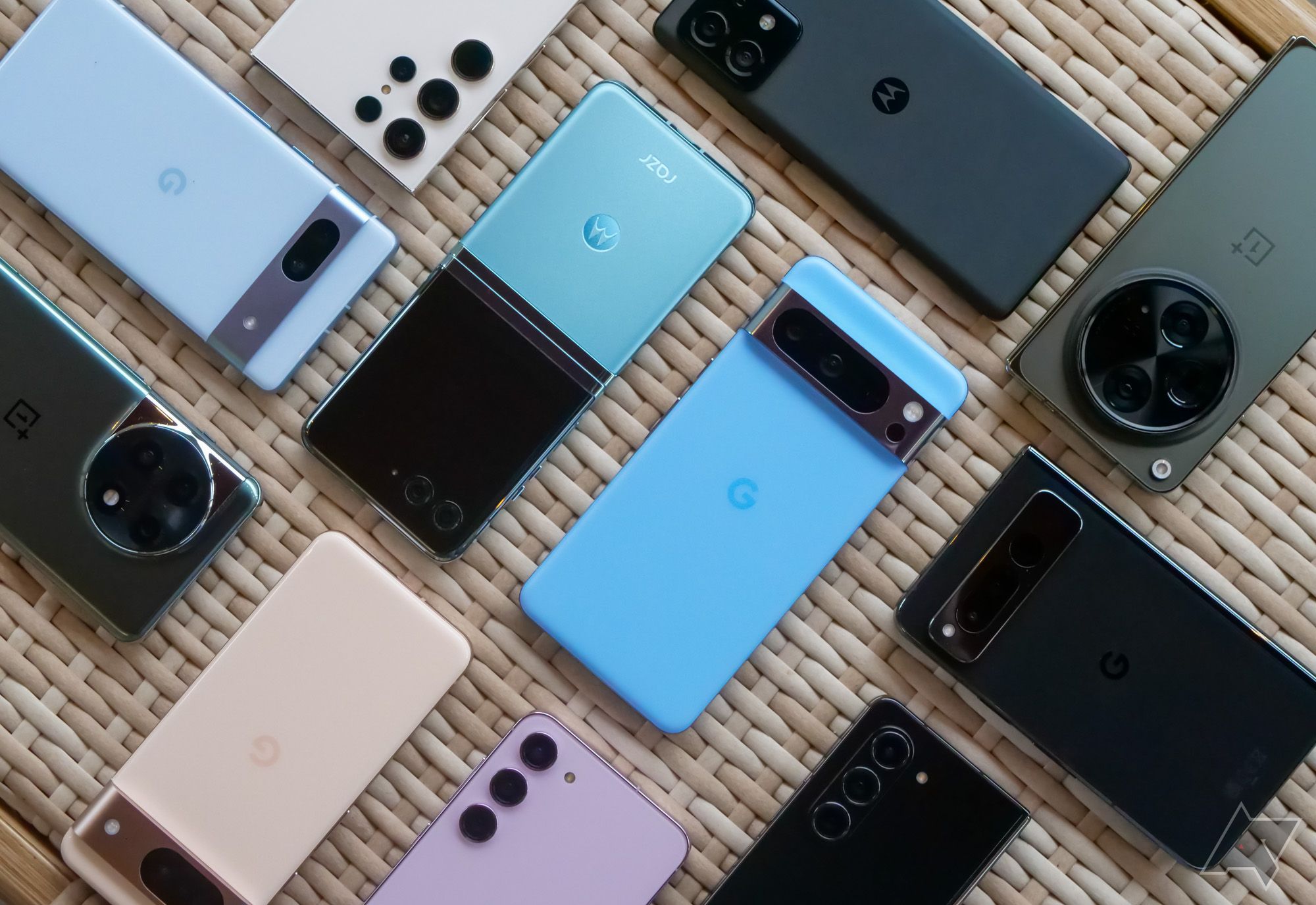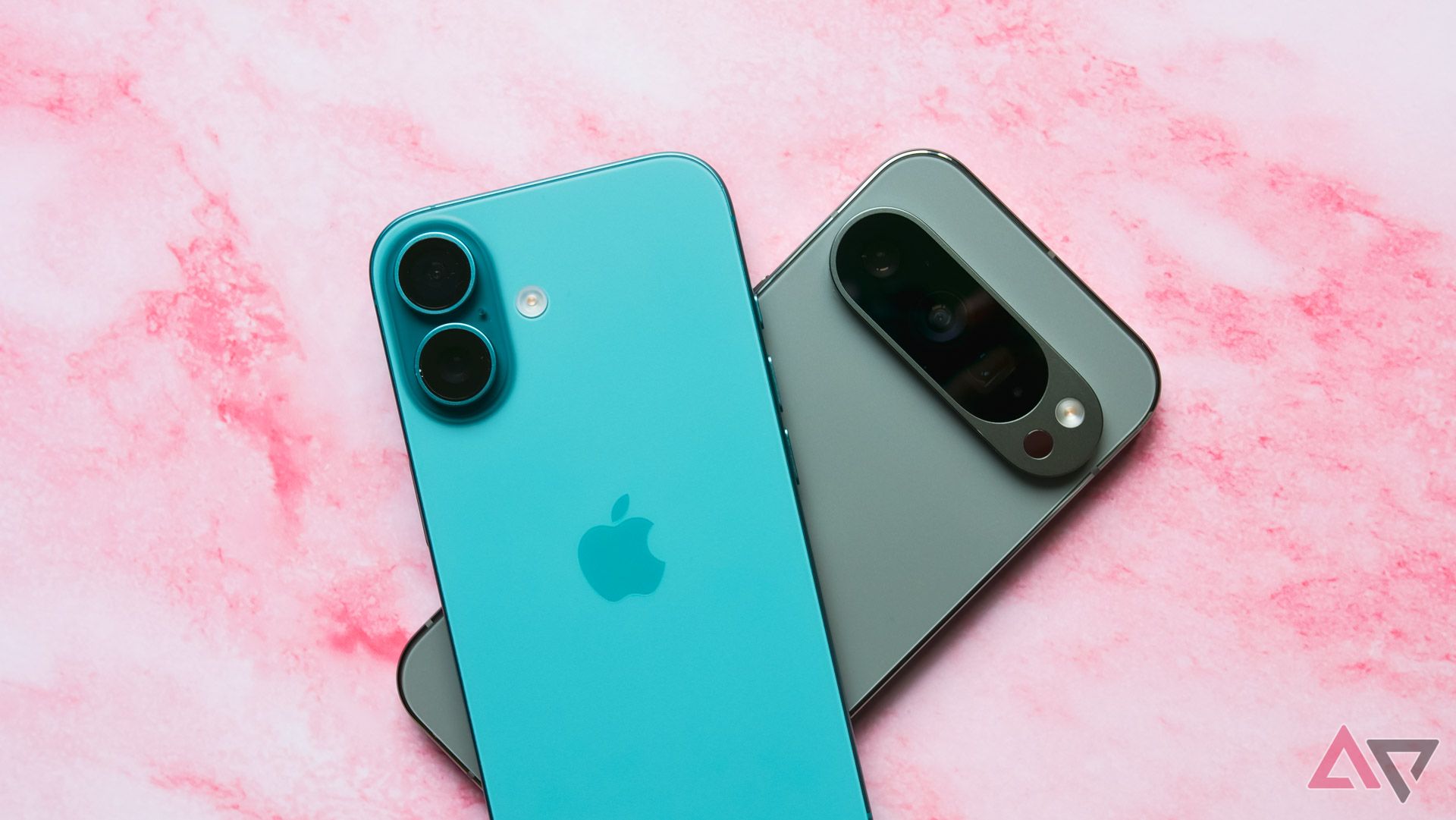How do dictionaries define the word “flagship”? In business, Oxford Languages defines it as “the best or most important thing owned or produced by a particular organization.” When it comes to flagship phones, I’d argue the meaning of the term is skewed to the point of confusion. As tech enthusiasts, we may believe that flagships, like Google’s Pixel phones, are the best. Still, it seems the borders defining the flagship category, if such a thing exists, are hazier than ever.
No Thanks, Keep Reading

I write about phones: Here are the 5 Android flagship features I’d like to see in 2025
Qi2, faster wired charging, and more
The origin of the flagship phone
When did we start calling top phones flagships?

One of the earliest examples I found of a phone being called a flagship dates to 2002. A Forbes article describes the then-upcoming Blackberry phone as a flagship, emphasizing the product’s significance and desirability. Still, the rise of flagship phones came in the 2010s. Smartphones grew in popularity, as did the number of models available across various price points. The need to highlight the best emerged naturally.
For a while, it was easy to tell which phone was the flagship and which wasn’t. Most smartphone makers had one high-end model at the top of their lineups: the Samsung Galaxy S III, the LG G3, and the HTC One, to mention a few. Today, most companies have multiple premium phones. Samsung has the Galaxy S series, Google has the Pixel 9 lineup, and Apple has four iPhone 16 models.
We agree that the Galaxy S24 Ultra is a flagship phone. Still, what about the Galaxy S24 and Galaxy S24 FE? Are Samsung’s foldables considered flagship phones? If a company’s best phone is a mid-range model, is it still a flagship? Do its specs, features, or price give a phone flagship status, or is it something else?
Flagship phone: What does it mean?
In search of a clear definition

If you’re looking for a general explanation of a flagship phone, How-to Geek has a solid article on the topic. Still, there isn’t a strict definition of the term. The Samsung Galaxy S24 Ultra is a flagship phone, but any phone in the S series can be seen as such. The S series is the most important in Samsung’s lineup, and the S24 Ultra is the best phone.
I’m not content with the loose definition of “flagship” that’s popular in marketing, the media, and among tech enthusiasts. It leaves too much room for interpretation, which could lead to confusion. It may be why some brands never use the word while others slap it wherever they see fit to drive up hype.
Are foldable phones flagships?
Most enthusiasts agree that top-of-the-line foldables like the Samsung Galaxy Z Fold 6, Google Pixel 9 Pro Fold, and OnePlus Open are flagship phones. They pack premium hardware and unique software features. They also look like gadgets out of a sci-fi movie. But are they really flagships?
Although foldable phones cover the functional aspects of a flagship phone, their significance is questionable as their market share remains minuscule. Their manufacturers’ main premium phone lineups are the key moneymakers. Therefore, whether high-end foldables are flagships is debatable because most people wouldn’t notice if the form factor disappeared tomorrow.
Can a mid-range phone be a flagship?

The Fairphone 5 is the company’s best phone. Its stand-out feature is the design. Anyone with enough enthusiasm and the right screwdriver can repair the handset if anything on it breaks. By definition, this is Fairphone’s flagship product. However, no Fairphone 5 review calls it a flagship phone, as its specs and features place it in mid-range territory.
In other words, today’s popular definition of a flagship phone requires it to be at the cutting edge of technology. It needs to drive excitement with innovation, performance, and advanced features.
Do specs define what phones are flagships?

Specs are part of the equation ensuring a phone’s flagship status. However, it’s unclear what hardware a phone needs to qualify. Take the Redmagic 10 Pro, for example. It’s a beast, with performance and battery life exceeding any mainstream phone. However, its cameras perform poorly, as is typical of even the best gaming phones. Can this phone be considered a flagship if it takes mediocre photos?
Another curious case is the Google Pixel 9. The tech media agrees it’s a flagship phone, but according to benchmarks, its SoC is slower than a Snapdragon chip from a year ago. What’s up with that?
What’s the big deal?
How loose definitions make things confusing

You may wonder why I make a big deal of the shaky definition of flagship phones. I wouldn’t write these lines if companies and tech communities didn’t throw the term around liberally, presumably because it sounds cool, not for its meaning.
Over the years, we’ve read about flagship phones and also about flagship killers, mid-range flagships, and budget flagships. What phones fit these categories? That’s up for interpretation. It’s fine if you’re discussing phones with fellow fans online. However, things can get confusing if you’re a casual shopper researching what phone to buy. When the flagship label can be applied freely, you’ll likely end up with unrealistic expectations of what you’ll get.
Vagueness also plays in companies’ favor. When a phone is advertised as having flagship speakers, a flagship camera system, or a flagship whatever, this doesn’t mean anything in particular. That feature may be very good on that phone, but calling it flagship-grade is boasting. It does not guarantee that the feature is best in the phone’s class, and you can’t call foul when a clear definition does not exist.
Flagship phones are what we say they are
Of all the words we use to describe and classify phones, “flagship” is the one that reverberates the most. It’s unlikely that we’ll stop hearing it soon. Yet, if I go back to the original question, a strict definition remains unclear, and I can’t name an alternative with the same ring to it.
We shouldn’t expect a smartphone company’s marketing department to define a flagship phone for us. Instead, we, as enthusiasts, can do a better job. A flagship phone is what we agree it is. I hope we can agree that using the flagship label too liberally can be confusing. Besides, do we need a new flagship phone every year?

